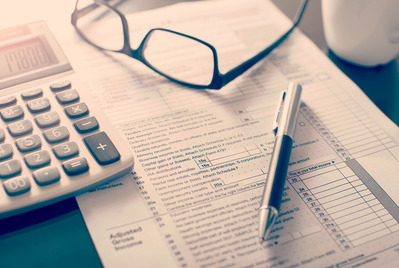
Rental profit is top of the investment priority list for many landlords, so it’s vital to work out the financial break-even point is for each of your properties. That’s how much the rental income and/or costs and expenses would have to change in order to completely wipe out or significantly reduce their monthly gains.
As long as your property is generating a decent yield and is professionally let and managed, you’re unlikely to lose a whole month’s rental profit. But without a financial plan, the occasional bad tenant and unexpected expenditure could have a big impact on how much money you make from buy to let – particularly in the current climate when costs and affordability can change quickly.
Know your profit margin
The first step is to have a clear record of all your income and expenditure, so you know exactly what your rental profit figure should be each month. Does it give you a good enough of a financial ‘cushion’ so that if your costs increase but you can’t raise your tenant’s rent, you’re still making money?
These five checks should also help work out your break even and stress points:-
Mortgage interest rate rises
Interest rates reached historic lows during the pandemic and mortgages had already been relatively inexpensive for a decade before that. But with the Bank Rate currently at its highest since 2008 and experts suggesting it could rise to 4.5% by the middle of 2023, it’s certainly possible that mortgage interest rates could rise this year.
If you do have a buy to let mortgage, that’s likely to be your biggest monthly cost and an interest rate hike could make quite a dent in your profits. So, even if you’re on a fixed rate that isn’t due to expire for a couple of years, it’s still a good idea to test out some worst-case scenarios for what the interest rate could rise to when you come to remortgage – would 6% or 8% still be affordable?
If you’d like to discuss your mortgage options, you can contact our partners at Embrace Financial Services – just book a free initial consultation via our website.
Regular maintenance costs going up
Maintenance costs do usually increase each year – generally in line with ‘normal’ inflation of 2-3%. But recently the price of both labour and materials has been going up by far more than usual, so it’s worth speaking to your suppliers to find out when and by how much their charges could increase over the next 12 months or so and factor that into your costs.
The cost of one-off big works
More expensive, ‘one-off’ works could wipe out your profit for several months or force you to dip into personal savings if you don’t plan and budget well ahead. So it’s a good idea to have a spreadsheet with a maintenance and repairs budget that covers the lifetime of your investment – which could easily be 15 years or more. Think about things like how often the property will need redecorating and when the kitchen and bathroom might need updating. When will you have to upgrade the boiler and when is the roof likely to need some work? Then you can calculate how much of your monthly profit you should be setting aside to cover the cost of these larger works.
A tenant defaulting on their rent
Non-payment of rent is probably the most damaging thing for a landlord’s profits, as it could leave you without any income for several months. Proper referencing and professional management greatly minimises the risk of you getting a tenant who can’t or won’t pay their rent, but it’s worth working out how many weeks of zero rental income your annual profits could tolerate.
We’d suggest you cover yourself by taking out rent protection insurance. It’s relatively low cost and can cover 100% of your monthly rent for up to 15 months if your tenant defaults.
Void periods
The average annual void period, where a property is empty between tenancies, is roughly three weeks. Although most of the properties we let and manage at Your Move are fully let for more than 49 weeks each year, it’s sensible to budget for a three-week period of no rental income.
Then run the numbers for what would happen if you had a month without any rental income. Do you have enough regular profit to set aside some in a ‘reserve fund’ in case you need to cover a rainy few weeks?
Remember that we’re always here to help if you’d like to talk through your monthly costs or need some help budgeting and working out your break-even point. Just get in touch with your nearest Your Move branch and make an appointment.
YOUR PROPERTY MAY BE REPOSSESSED IF YOU DO NOT KEEP UP REPAYMENTS ON YOUR MORTGAGE.
Your initial mortgage appointment is without obligation. Embrace Financial Services normally charge a fee for their services; however, it is payable only on the submission of your mortgage application. The fee will depend on your circumstances but the standard fee is £549. Complex cases usually attract a higher fee. Embrace Financial Services will discuss and agree the fee with you prior to submitting any mortgage application.
Please be aware that the information provided within these archives has been pre-published, as of the date published on each article. The information contained within, including references to taxation, legislation, regulation, or any other issues or concerns may no longer apply.
The Your Move Content Marketing Team



